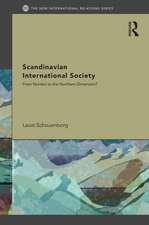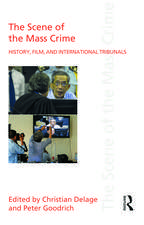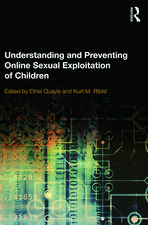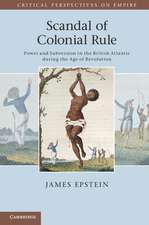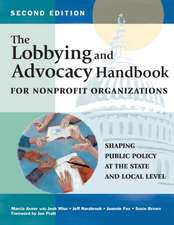William Cobbett: Selected Writings Vol 5
Autor Leonora Nattrass, James Epsteinen Limba Engleză Hardback – noi 1998
Preț: 485.78 lei
Preț vechi: 730.60 lei
-34% Nou
Puncte Express: 729
Preț estimativ în valută:
92.96€ • 96.47$ • 77.70£
92.96€ • 96.47$ • 77.70£
Carte tipărită la comandă
Livrare economică 17-31 martie
Preluare comenzi: 021 569.72.76
Specificații
ISBN-13: 9781138766037
ISBN-10: 1138766038
Pagini: 366
Dimensiuni: 156 x 234 mm
Greutate: 0.45 kg
Ediția:1
Editura: Taylor & Francis
Colecția Routledge
Locul publicării:Oxford, United Kingdom
ISBN-10: 1138766038
Pagini: 366
Dimensiuni: 156 x 234 mm
Greutate: 0.45 kg
Ediția:1
Editura: Taylor & Francis
Colecția Routledge
Locul publicării:Oxford, United Kingdom
Cuprins
Volume 5: Introduction, A History of the Protestant Reformation Letter I. Introduction, Letter II. Origin of the Catholic Church. History of the Church, in England down to the beginning of the Reformation. Beginning of the Reformation by Henry VIII Letter III. Resistance to the King's measures. Effects of abolishing the Pope's supremacy. Death of Sir Thomas More and Bishop Fisher. Horrible murders of Catholics. Luther and the new religion. Burning of Catholics and Protestants at the same fire. Execrable conduct of Cranmer. Title of defender of the faith. Letter IV. Horrid tyranny. Butchery of the Countess of Salisbury. Celibacy of the clergy. - Bishops of Winchester. Hume's charges and Bishop Tanner's answer. Letter V. Authorities relating to the effects of the monastic institutions. Their great utility and the political wisdom in which they were founded. The appointment of the ruffian Thomas Cromwel. His proceedings in the work of plunder and devastation. The first act of Parliament authorising the plunder. Letter VI. Confiscation of the monasteries. Base and cruel means of doing this. The sacking and defacing of the country. Breaking up of the tomb of Alfred. More wives divorced and killed. Death of the miscreant Cromwel. Death of the tyrant himself. 107 Letter VII. Edward VI crowned. Peijury of the executors of Henry VIII. New church by law established. Robbery of the churches. Insurrections of the people. Treasons of Cranmer and his associates. Death of the King. Letter VIII. Mary's accession to the throne. Her mild and benevolent laws. The nation reconciled to the Church. The Queen's great generosity and piety. Her marriage with Philip. Fox's Martyrs. Letter IX. Mary at war with France. The capture of Calais by the French. The death of Queen Mary. Accession of Queen Elizabeth. Her cruel and bloody laws relative to religion. Her perfidy with regard to France. The disgrace she brought upon her Government and the country by this perfdy. Her base and perpetual surrender of Calais. Letter X. Massacre of Saint Bartholomew. Tail-piece to it. A Man's hand cut off for thwarting Bess in her love-sick fit. Her favourites and ministers. History and murder of Mary, Queen of Scotland. Letter XI. Bess's Hypocrisy as to the death of Mary Stuart. Spanish Armada. Poor-Laws. Barbarous treatment of Ireland. Bess's Inquisition. Horrid persecution of Catholics. The rack and tortures she employed. Her death. Letter XII. Accession of James I. Horrid persecution of the Catholics. Gunpowder Plot. Charles I qualified for the rank of martyr. Reformation the second, or thorough Godly Reformation. Charles II, the plots and ingratitude of his reign. James II, his endeavours to introduce general toleration. Dawn of Glorious revolution. Letter XIII. Glorious revolution, or Reformation the Third. The Dutch King and his delivering army. The crimes of James II, with elucidation. Parliamentary purity. The Protestant Bishop, Jocelyn. Sydney, and others of the Protestant patriots. Habeas Corpus Act. Settlement of American colonies. Letter XIV. William's triumph over James and the Catholics. A no-popery war requires money to carry it on. Burnet's scheme of borrowing and funding. Origin of banks and bank notes. Heavy taxes, excise, Septennial Bill. Attempt to tax the Americans. Americans revolt in the face of the doctrines of Blackstone. Their charges against George III. Letter XV. American Reformation brought relief to Catholics. Persecutions up to the reign of James II. Law-church opposes liberty of conscience. Horrible penal code. Softened, at last, from motives of fear. French Revolution, produces a second softening of the code. Penal code, as it now stands. Result of the Reformation, as far as relates to religion. Letter XVI. Former population of England and Ireland. Former wealth. Former power. Former freedom. Former plenty, ease and happiness, Index
Descriere
William Cobbett (1763-1835) was a prolific writer, best known as the anti-Radical founder of Cobbett's "Political Register" which ran from 1802-35


